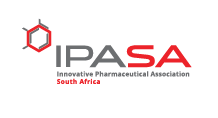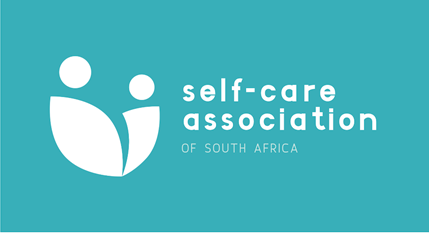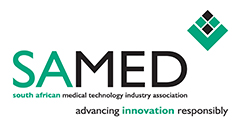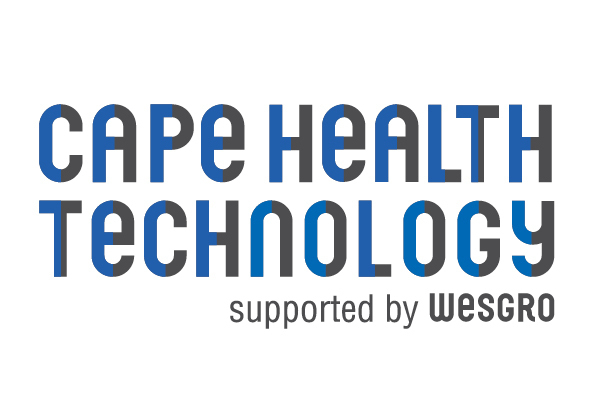Industry Bodies

IPASA
Who we are:
Established in 2013, IPASA is an association of 26 international pharmaceutical companies dedicated to researching and developing innovative medications medical devices and diagnostic tools. Promoting a sustainable environment, for the innovator pharmaceutical industry in South Africa, we are committed to contributing towards a patient-centered health system benefiting from breakthrough treatments by engaging with all stakeholders in the health care system.
We are affiliated to the International Federation of Pharmaceutical Manufacturers & Associations (IFPMA), I, while locally, we collaborate with a host of other associations and pharmaceutical manufacturers. We conduct this association with other local associations through a body that is known as the Pharmaceutical Task Group (PTG).
Through the PTG, we act collaboratively on issues that affect the pharmaceutical industry in South Africa.
Read More
What we do:
IPASA was formed through a desire for a credible, respected association to engage with stakeholders in both the public and private sectors, with an aim to focus on building an environment for sustainable access to innovative, research-based healthcare.
Among the major contributions to the healthcare sector in the country is the conducting of clinical trials, which provide the foundation of any new medicine. Our members have ensured that clinical trials are conducted not only in the developed world, but also in the developing world. South Africa is renowned for having world class clinical trial centres in its major universities and other institutions. We do this through ensuring world class medicines, which are developed through multi-national investments, and are protected by intellectual property, to improve public health responses.
In the midst of the Covid-19 pandemic, we are at the forefront of ensuring that new therapeutics and new vaccines are developed at breakneck speed, while still ensuring that they are safe and efficacious once supplied to people in the country.
How we support our members:
Collaboration beats individual efforts every time.
We promote our members’ common interests to benefit consumers and support a vibrant, flourishing research and development environment to contribute to the patient’s well-being and the economy. We engage and communicate with government, non-governmental organizations, health care providers, communities and other stakeholders in the healthcare system to find solutions to pressing healthcare challenges. In particular, we always welcome being approached by patient-based organizations which are always looking for solutions to some of the illnesses, which at times are totally beyond therapies or treatments currently available in the country.
By joining IPASA, you join an association that supports, educates, researches and shares a broad base of knowledge and information in the field of pharmaceuticals and health sciences.
What we have achieved:
Not only do our medicines save lives, improve health and prolong and enhance the quality of life, but they also reduce overall health care costs by speeding up recovery times. Very often they reduce the need for surgery and hospitalization.
Pharmaceutical companies stimulate the local economy through employment, taxes, skills development and technology transfer.
While it it true that generic medicines are cheaper, research and development, the process through which the multinationals eventually produce medicines are really the pipeline, without which there will be no generic medicines.
The Covid-19 pandemic has shown that vaccines, novel therapeutics, new medical devices, will always be brought to market through this rigorous process of research and development that is conducted by the pharmaceutical industry.
The pandemic has brought to the fore the need for collaboration between stakeholders and we have seen greater collaboration between the public and the private sectors in the country. Through bodies such as Business for South Africa and our member companies – individually or through IPASA – we have made huge contributions to help government through this time.
The Covid-19 pandemic has prompted the most remarkable collaborative and ambitious response from around the world. We have new, and formidable partnerships, that have been forged across the healthcare sector to hasten the discovery, manufacturing and delivery of cutting edge innovations. The production of new vaccines, therapeutics and diagnostics is unfolding at unprecedented levels, with safety still being the highest priority.
Anyone looking to learn more about IPASA or how to become a member can visit our website at www.ipasa.co.za or can email: info@ipasa.co.za / bada@ipasa.co.za / xolile@ipasa.co.za

Self-Care Association of South Africa
Who we are:
The organization was started in 1999 as the Self-Medication Manufacturers Association of South Africa, better known as SMASA, and has literally grown from one person working one and a half days a week to a full time staff complement working 5 days a week. We have 48 members, primarily over- the-counter (OTC) medicine companies, the likes of a J&J, Inova, GSK, P&G and Aspen. It should be noted that OTC medicines is inclusive of complementary medicines and health supplements, for example, products such as multi-vitamins, probiotics and the like.
Any company that sells schedule 0, schedule 1 and schedule 2 medicines, which are products which you are able to obtain in a pharmacy – or in the case of schedule 0, in a grocery store – without a doctor’s prescription is eligible for Ordinary membership of the Self-Care Association of South Africa
We have a total of five membership categories, namely Ordinary, Associate, Retailers and Wholesalers, Consultants, Honorary and Academia Membership the latter being your pharmacy schools.
Read More
What are our membership benefits?
We are here to serve our membership. Any questions, support or training that is required, we will offer or facilitate. It could be anything from information, guidelines, announcements etc published by the South African Health Products Regulatory Authority (SAHPRA) to the dissemination of general information. We ensure that we serve our members completely. Nothing is too much trouble.
We represent our members on all levels, both in terms of lobbying for / against regulations or policies that may affect the industry to bridging the gap between them and the regulatory authorities such as SAHPRA and the National Department of Health.
So instead of 48 companies knocking on their doors, we do it for them. Any support within the healthcare environment in the regulatory and pricing space that is required, we offer.
We have enjoyed great success since our inception, and in October next year, we are looking forward to hosting the Global Self-Care Federation World Congress, which we were chosen to host largely due to the reputation we have built up over the years. This will be held in Cape Town. All global OTC associations belong to the federation and what is beneficial is the information that we are able to glean from our global counterparts.
Want to learn more?
The best source is our website: www.selfcareassociation.co.za where you will learn about our membership categories and all that we have to offer. To get in touch directly, contact our CEO, Nicola Brink on nicola@selfcareassociation.co.za / 082 410 5859.

Western Cape Medical Devices Cluster (WCMDC)
Who are we?
The WCMDC in an NPO that was set up almost exactly four years ago with the assistance of Wesgro and the Department of Trade, Industry and Competition. We had seven inaugural founding companies, which include TiTaMED, who manufacture spinal implants, Viva Medical that specializes in devices for intravenous therapy, Sonapi Biomedical, who focus on systems for fluid drainage, Shonaquip, that builds novel wheelchair systems; Medi-Safe who manufacture surgical safety scalpels; Medical Diagnostech that has a range of diagnostic test kits used to test for pregnancy, malaria and HIV; and finally, CapeRay that’s developed a novel imaging system for the early detection of breast cancer.
Read More
How do we support the industry?
The members of the cluster share a vision of supporting the development of a competitive, growing medical devices sector in the Western Cape region, by enabling the growth of our members and providing services that benefit the industry as a whole.
The cluster has four primary purposes:
- To provide certification support for members and potentially the sector as a whole and to increase the competitiveness and to enable market access for international and local markets. We can do this by having manufacturing premises which are certifiedin accordance with local and international standards such as the ISO 13485, the CE mark medical devices directive, as well as FDA approval.
- Marketing and lobbying to support increasing market access for local manufacturers to both public and corporate procurement.
- Lobbying for education initiatives to provide information to policy and lawmakers in regard to the specific characteristics of the medical devices sector and its stakeholders.
- To conduct medical device sector research as well as the promotion of the sector to potential members, new members and key sector stakeholders by, among other things, compiling a detailed database of all participants within the medical devices sector and the hosting of workshops.
We estimate that there are approximately 40 separate companies within the Western Cape that manufacturer medical devices.
Why join?
One of the major benefits of joining our organization is the networking opportunities.
Our members are keen, and indeed willing, to assist one another, in particular, new members to secure regulatory approval for their companies and for their products, for example, the CE mark and FDA clearance.
The cluster last year partnered with Stellenbosch University in the development of separate coursework that will soon be available to assist companies in the training of their staff with regulatory issues.
We’ve also had success in dealing with the local Western Cape Department of Health in persuading them to allow small companies to compete for tenders without having to subject their products to tests which are both time consuming and expensive. This was an initiative by one of our members, Viva Medical.
We’ve also worked closely with Wesgro who have for the past year, arranged these very successful Cape Health Business weeks.
We’ve also collaborated with the Medical Device Manufacturers of South Africa and the Department of Trade, Industry and Competition to enable our members to attend trade shows, such as Arab Health in Dubai, as well as Africa Health in Gauteng.
What have we achieved?
Some of our achievements of the cluster members include:
- An increase in the number of people employed in the medical device industry. For example, one of our companies, Sonapi, now employs well over 100 people.
- An increase in the export of locally manufactured products. For example, one of our companies, Medi-Safe now has a 15% of market share of the traditional safety scalpel market in the USA. That’s a truly remarkable accomplishment.
- The development of novel products specific to the Covid 19 pandemic. For example, Medical Diagnostech developed an antigen-based rapid test kit, while Shonaquip developed a locally produced full face personal respirator.
- An increase in the number of our companies that have been able to secure regulatory approval for their products. For example, CapeRay secured the CE mark for its Aceso system to detect breast cancer.
Want to know more?
If you’re interested in becoming a member or would like to know more about WCMDC, take a look at our website: www.wcmdc.org.za or contact Kit Vaughan at kit@caperay.com or 072 795 8099.

SAMED
Who are we?
We are a not-for-gain trade association that was established in 1985 in order to engage the regulator to bring about medical device regulations in South Africa. In a constantly evolving regulatory landscape, this objective was realised in 2016.
SAMED acts as the voice of the medical technology industry in South Africa. We have a diverse profile of ordinary members including manufacturers, distributors and wholesalers of medical technology and in-vitro diagnostics.
Our market is primarily a distributor-based market, with the majority of our members being small- to medium-sized companies distributing medical technology.
Read More
SAMED also has association members, namely the South African Laboratory and Diagnostics Association (SALDA) and the Medical Devices Manufacturer of South Africa (MDMSA). The third category are associate members, made up primarily of service providers to the industry, such as logistics companies and regulatory and reimbursement consultants.
We provide a collective, credible platform for the medtech industry to engage with key stakeholders, such as policymakers, government including National Health Department, National Treasury and the dtic, provincial Departments of Health, the Parliamentary Portfolio Committee on Health, medical schemes, professional societies, and all other role players who are key to the development, regulation and sustainability of our industry. So, we are committed to ensuring a sustainable, transformed and ethical medtech industry in South Africa.
How we support the medical technology industry
Much of SAMED’s work is done through our committees:
Code Committee: Ensures that our members abide with the Medical Device Code of Ethical Marketing and Business Practice. In this way, we help to ensure that our members’ business practices do not inadvertently cause them to participate in any corrupt behaviour. The committee also liaises with other formations addressing fraud, waste and corruption in the health sector.
Market Access Committee: Engages with the provincial health departments, the dtic and private healthcare funders to strengthen supply chain management, tender processes, reimbursement and HTA mechanisms in both the private and public sectors and participate in Council for Medical Schemes consultations.
We have developed a reimbursement guidance document for our members. They can use this when engaging with the medical funders in order to ensure that their products are reimbursed by medical schemes. We have a strong focus on value based procurement as adequate, and planned procurement that reflects the medtech sector’s role across the healthcare value chain is vital to ensuring that appropriate, cost-effective, safe and quality medical technologies are accessible to healthcare and patients and correctly reimbursed for by either the private or public sector.
Regulatory Committee: Advances and supports the implementation of an effective harmonised legislative environment for our industry. The committee hosts regulatory forums and events to assist members in understanding and complying with the regulatory requirements for the continued supply of safe and effective technologies.
National Health Insurance Committee: Keeps abreast of NHI developments and reviews, supports and contributes to the shaping of policy, legislation and the practical implementation of NHI.
Transformation Committee: SAMED believes that transformation is a socio-economic imperative and has a strategy for transformation within our sector and by individual members. We provide tools and support to our members to assist them in achieving B-BBEE and transformation objectives aligned with government policy.
Medical Imaging SA (MISA) Committee: Promotes the interests of the medical imaging industry. Medical imagining operates in a highly regulated environment and regular interaction with the regulator is key to its strategic objectives.
Advantages of being a member of SAMED
In addition to already-mentioned benefits, we engage with diverse local and global stakeholders on behalf of our members on an ongoinig basis. We subscribe to the Government Gazette and Tender Bulletin to understand and ensure we can provide relevant information to members timeously, and to make submissions to legislation, regulations or guidance documents that impact the industry.
We hold training forums and information workshops for members and host the annual conference which addresses latest relevant aspects of the medical technology. We provide access to a network of industry peers with diverse expertise that are passionate about the medtech sector.
Locally we belong to and represent the industry’s voice within the Presidential Health Sector Anti-Corruption Forum (HSACF), NAPPI Advisory Board and the Industry Task Group (ITG).
We also belong to two international associations: The Global Harmonization Working Party (previously known as the Asian Harmonization Working Party) and the Global Medical Technology Alliance. These entities include representatives from medical technology regulators from around the world, as well as industry bodies like SAMED. This allows us to engage with best practice and respond to challenges that impact on the international and regional medtech sector.
Our achievements
We have grown significantly since inception, which shows we are having an impact, with an average of one new member company joining SAMED every month.
After much effort, we managed to get the term ‘medical devices’ removed from the definition of health products in the amended Medicines and Related Substances Act 101. We now have our own definition of medical devices and in vitro diagnostics and as a consequence, a unique, purpose-built set of regulations for medical technologies.
We have created the Medical Device Forum as a platform for ongoing engagement with Medical Device Department of the South African Health Products Regulatory Authority (SAHPRA). Prior to this, we had to engage through a more pharmaceutical industry-dominated structures which often did not fit the purpose, value and use of diverse medical technologies.
Want to know more?
If you’re interested in becoming a member or would like to know more about SAMED, take a look at our website www.samed.org.za or email info@samed.org.za.

MDMSA
Who we are:
The organization has existed in its current format since 2013. Prior to that, MDMSA was affiliated with SAMED as the local manufacturing division of SAMED. Currently we have about 58 members.
Local manufacturing only constitutes about 10% of the products available in the South African market and we have a long way to go from that perspective. The organization’s aim is to try and narrow that gap of local manufacturers versus imported medical devices.
Our advocacy focuses on all of the partners that we can align with in order to grow the local industry, including the Department of Trade and Industry, Department of Science and Technology, Department of Health, the Department of Education and the Council for Scientific Industrial Research.
Read More
What we do:
We advocate for our members to support them in growing their businesses and to enable them to manufacture local products.
We provide leads on tenders, we provide leads on incentives offered by different agencies such as Wesgro in the in the Western Cape or DTI at a national level.
We expose our members to these opportunities.
What are the benefits
We offer our members a One Stop Shop for everything needed to run and grow their business.
Firstly the insight and networking exposing, them to all of the major role players in the industry, arranging meetings with organizations that they need to be in contact with in order to manufacture their products:
We have regular meetings with SAHPRA, DTI, the Department of Health – both nationally and provincially, and all of the hospital groups and we expose our members to all the key role players they need to interact with to grow their businesses and take them into the market.
It’s about networking, it’s about exposure, it’s about lobbying, it’s about opportunity.
What we have achieved
The collaboration between our members and role players has borne some great success.
Our members’ success is our success
We collaborate between our members and the applicable agencies and these interventions have led to some great success stories.
CapeRay have had great success with their product, which is a combination of X Ray and ultrasound. Not only have they managed to enter the local market, but exports as well.
Another member, Southern Medical, manufactures dental implants and export to Europe and the United States.
We have helped support these members in terms of their interaction with DTI and other agencies that they need to be exposed to in order to grow their business.
These are just two examples that act as the benchmarks for our other members.
For more information:
www.mdmsa.org.za

Proudly South African
Who we are
We are a not-for-profit membership organization established in 2001 by Nedlac off the 1998 Jobs Summit. There was a massive need for a Buy Local Campaign to address unemployment in the country and this is still very much high on the agenda. Unemployment needs to be addressed and Proudly South African has been tasked with doing just that.
What we do:
Proudly South African seeks to influence local procurement in the public and private sectors, to increase local production and to influence consumers to buy local in order to stimulate job creation. This is in line with government’s plans to revive South Africa’s economy so that millions of jobs can be created and unemployment can be reduced. The work of Proudly South African aligns with the broader National Development Plan and the Local Procurement Accord signed in October 2011.
Read More
Membership benefits
All of these benefits are free to members of Proudly South African:
- Use of Proudly SA logo a recognised endorsement of local content & quality.
- Access to Market Platforms:
- Free listing on RSAMADE – Proudly SA’s official online store for B2C & B2B opportunities;
- First-hand access to tender opportunities designated for local content by the dtic;
- Inclusion in Proudly SA’s database of local products and services, housed on Proudly SA website;
- Secured procurement opportunities with industry associations and their members (localisation commitments);
- Participation in industry-specific portals, such a Proudly SA’s PPE Portals: a marketplace for local manufacturers that have been vetted according to industry standards, used as a procurement tool to drive local demand
- Facilitation of B2B opportunities with other Proudly SA members; and
- Participation in & access to:
- annual Proudly SA Buy Local Summit & Expo;
- Supply Chain Workshops;
- business & sector-specific forums – networking & info-sharing;
- joint promotions with Proudly SA – consumer-targeted campaigns, major events & expos;
- Proudly SA’s extensive marketing strategy & activities – promote members’ products & services;
- Proudly SA’s PR & communication platforms – newsletter, product booklet, social media platforms & print & broadcast media; and
- special packages & pricing between other members.
Proudly South African is also looking to expand its mandate to help with export opportunities.
We are part of the DTIC Industry Master Plans and members benefit from this conversation.
Proudly South African success
Proudly South African’s power to lobby and the equity of the brand is very strong. We are highly protective of the brand and ensure that only vetted brands are using the logo.
We have stepped in to help brands that were struggling to gain more exposure. The work we are doing and the messaging we are putting out is being supported by the industry, and the country, which is a wonderful feat and a fantastic legacy for us.
We stand for something: buy local and create jobs.
Want to know more?
There is a vetting process in place for all potential members. We look at:
Local content
Adheres to industry standards and specifications as determined by the regulators and industry bodies
Safe environmental standards adhered to
Implementation of fair labour practices
Once approved, there is a nominal membership fee.
For more information visit: www.proudlysa.co.za / info@proudlysa.co.za / 011 327 7778
